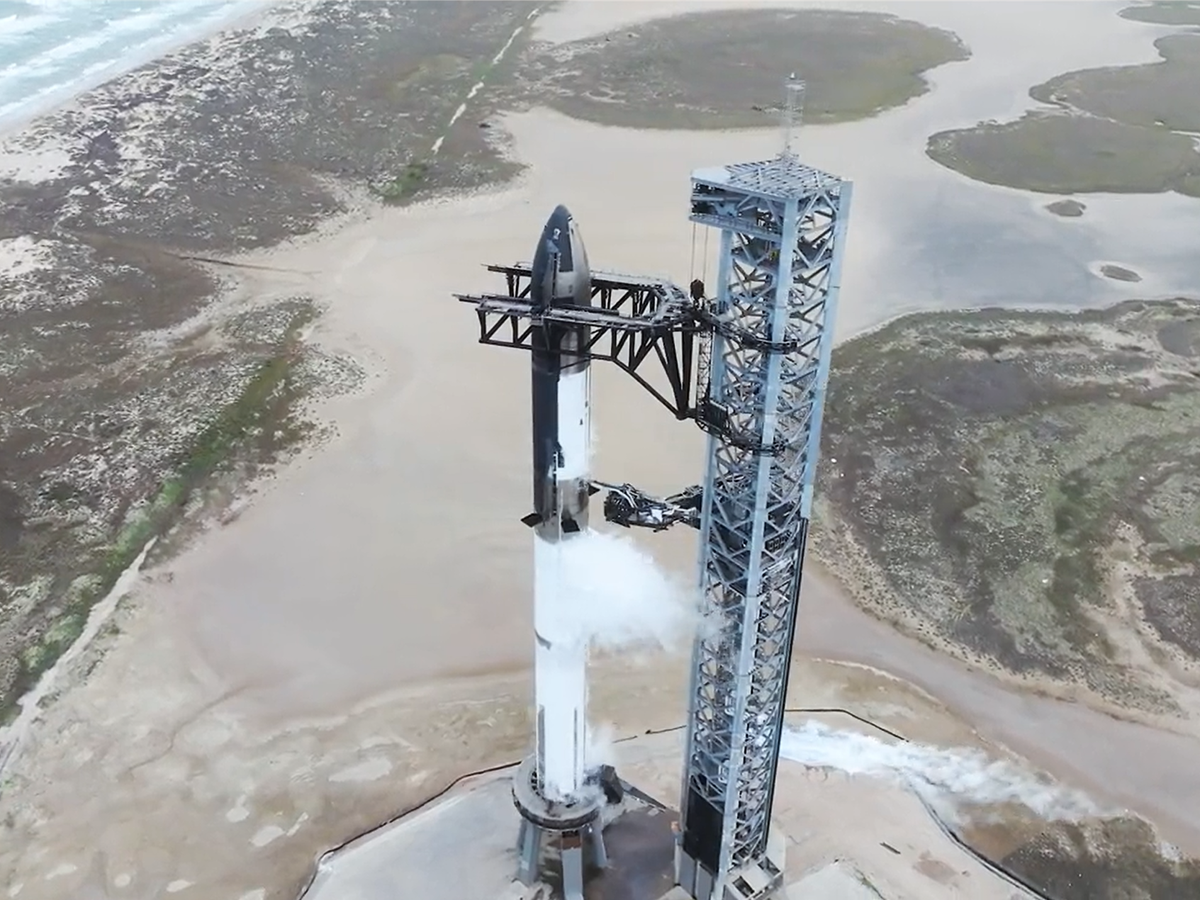SpaceX’s Starship rocket completes first full ‘dress rehearsal’ ahead of orbital launch

- Oops!Something went wrong.Please try again later.
SpaceX has completed one of the last major tests of its Starship rocket ahead of the first ever orbital launch attempt of the Mars-bound craft.
The private space firm performed the “full flight-like wet dress rehearsal” of a Starship stacked on top of a Super Heavy booster at its Starbase facility in Boca Chica, Texas, on Monday.
SpaceX boss Elon Musk said earlier this month that he is aiming for the first ever orbital flight test of Starship next month. If successful, it will be the biggest rocket launch in history.
“Starship completed its first full flight-like wet dress rehearsal at Starbase today,” SpaceX announced on Monday.
“This was the first time an integrated Ship and Booster were fully loaded with more than 10 million pounds of propellant.”
SpaceX said the aim of the test was to help verify a full launch countdown sequence, as well as assess the performance of Starship and the orbital launch pad for “flight-like operations”.
The space firm is still waiting for approval from the US Federal Aviation Administration (FAA), while technical issues and adverse weather conditions could also delay the launch.
In a statement to The Independent, an FAA spokesperson said: “The FAA will make a licence determination only after the agency is satisfied SpaceX meets all licensing, safety and other regulatory requirements.”
Starship completed its first full flight-like wet dress rehearsal at Starbase today. This was the first time an integrated Ship and Booster were fully loaded with more than 10 million pounds of propellant pic.twitter.com/btprGNGZ1G
— SpaceX (@SpaceX) January 24, 2023
The first Starship missions will likely be to the Moon as part of Nasa’s Artemis programme, after SpaceX secured a multi-billion dollar contract with the US space agency to use the craft as a lander.
Future missions will then see it used to transport people and cargo across the Solar System, with the eventual goal of establishing a permanent human colony on Mars by 2050, according to Mr Musk.

